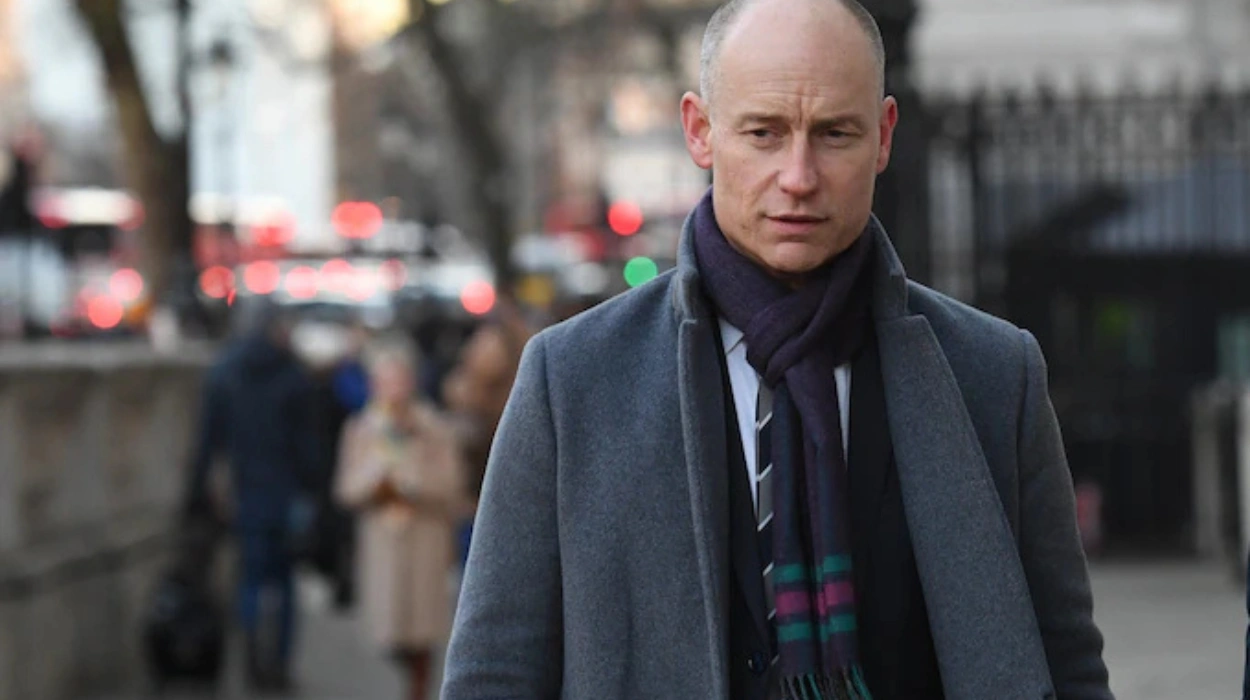UK (Parliament Politics Magazine) – Labour health minister Stephen Kinnock states that private firms could assist in providing legal assisted dying under National Health Service guidelines.
A health minister confirms Labour is open to private firms offering assisted dying services.
What did Stephen Kinnock say about private firms in assisted dying?
Care Minister Stephen Kinnock affirmed that assisted dying services could be available in the NHS at no cost to patients while emphasizing that private firms could still be involved as independent contractors.
The minister, a supporter of Kim Leadbeater’s Terminally Ill Adults Bill, now serves on the committee reviewing it, representing the stance of the Department of Health and Social Care.
The care minister told The House magazine,
“Kim has said that she wants this service to be an integral part of the NHS, meaning free at the point of use.”
He stated,
“Certainly the advice that we as ministers have given her is we’ve clearly understood that that is her wish, and that is a wish that can be delivered and carried out.”
Mr Kinnock added,
“Now, free at the point of use doesn’t preclude the use of independent contractors to deliver the service. So, yeah, we’re comfortable with that.”
Speaking to the House, he assured that the proposed law would undergo detailed parliamentary scrutiny.
What are critics saying about private firms in assisted dying?
Opponents argue that involving private companies in assisted dying services risks commercializing the process, raising ethical concerns about financial motives in end-of-life care.
Conservative MP Danny Kruger, a member of the Bill committee opposing the legislation, warned last week that assisted dying “would be a money-making enterprise, quite a lucrative one. There have been estimates given of between 5,000 to 17,000 assisted deaths per year, depending on how it’s estimated.”
He stated,
“If the charges employed by Dignitas, which is in a sense the model being proposed here, if they are anything to go by, this could be up to the region of £5,000 to £10,000 per patient.”
Mr Kruger added,
“So even a small proportion of that would be… a significant multi-million pound business would be possible under this Bill.”
What did Wes Streeting say about assisted dying on the NHS?
Wes Streeting, the Health Secretary, has warned that offering assisted dying through the NHS could strain resources, potentially affecting budget allocations.
He opposes a change in the law, stating, “There would be resource implications for doing [assisted dying]. And those choices would come at the expense of other choices.”
What is the assisted dying Bill?
- MPs have backed a Bill allowing terminally ill individuals in England and Wales to seek assisted dying, pending parliamentary approval.
- Under current UK law, medical assistance in dying remains prohibited.
- Labour MP Kim Leadbeater proposed the Terminally Ill (End of Life) Bill to tackle this issue.
- A vote on November 29, 2023, saw 330 MPs in favor and 275 against approving assisted dying.
- Sir Keir Starmer and Chancellor Rachel Reeves supported the Bill.
- Opponents included Deputy PM Angela Rayner, Foreign Secretary David Lammy, Health Secretary Wes Streeting, and Justice Secretary Shabana Mahmood.
Who supports the assisted dying bill?
- Dame Esther Rantzen, diagnosed with stage four lung cancer, supports the Bill, arguing it upholds dignity for terminally ill patients.
- Dr. David Nicholl, a neurologist, believes it will enhance doctor-patient discussions on end-of-life care.
- Henry Marsh, writing for the Royal College of Surgeons, highlights demand for assisted dying, stating that wealthier individuals travel to Switzerland for the option.
Who opposes the assisted dying bill?
- Dr. Gordon Macdonald, head of Care Not Killing, argues that existing laws on assisted dying are the safest option.
- Dr. Gillian Wright, an ex-palliative care doctor, warns that enforcing the Bill’s safeguards would be challenging.
- Baroness Grey-Thompson, a Paralympian and peer, raises concerns for vulnerable people, including coercion and misdiagnosis.
Requirements of the assisted dying bill
- Those interested in assisted dying must be 18 years old, living in England or Wales, and registered with a GP for at least 12 months.
- Individuals have mental capacity and express a clear, voluntary, and informed decision.
- Must be terminally ill with six months to live.
- Required to make two signed declarations, witnessed and verified.
- The Bill excludes individuals with disabilities or mental illness alone.
- Must be assessed by two independent doctors, with a seven-day gap between evaluations.
- A High Court Judge reviews the case, possibly questioning the patient or others involved.
- A 14-day waiting period follows the judge’s decision before proceeding.


